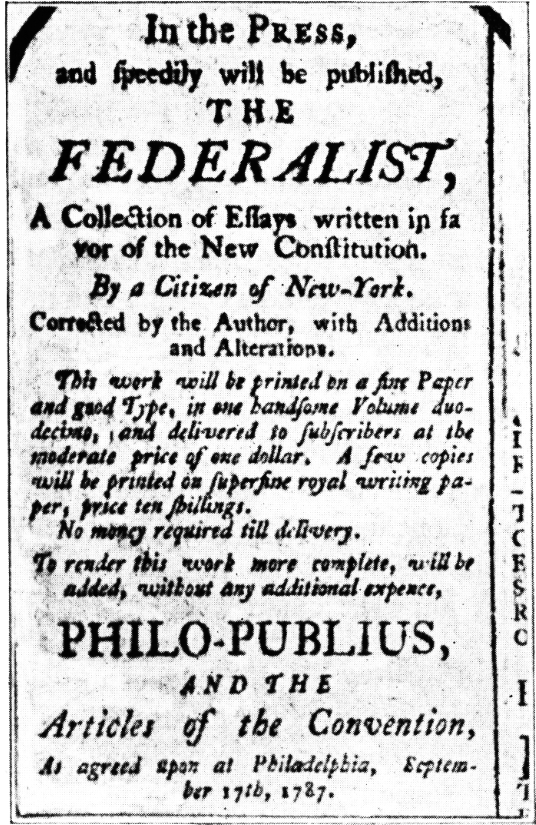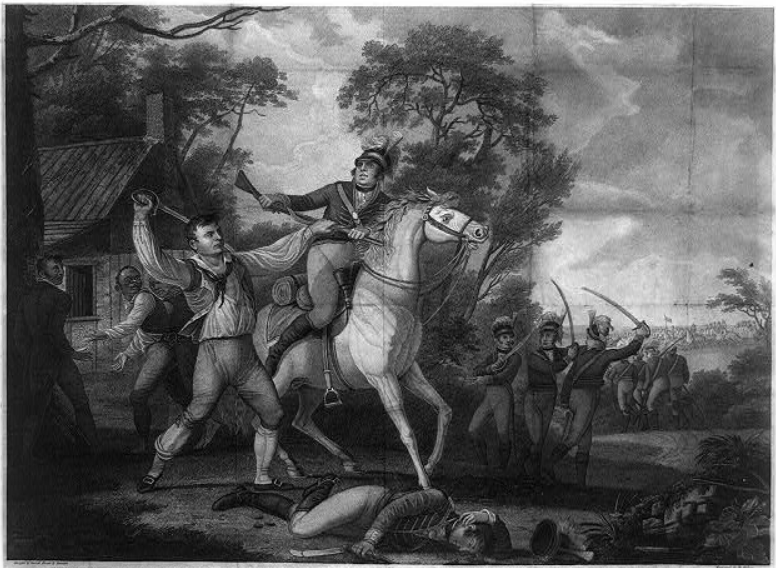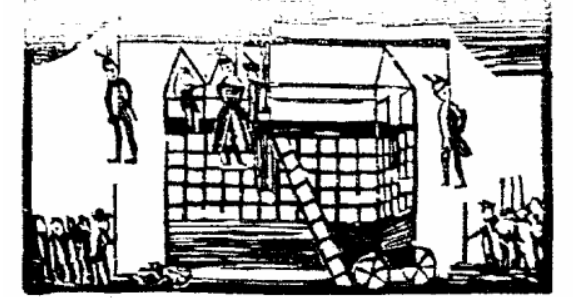Sharing Power - Federalist #34
In Federalist #34 Alexander Hamilton discusses the sharing of power between the State and National Governments. Specifically, he relates these powers to taxation.
As usual, Hamilton’s tone is what stands out in this essay. Though on the surface he is pretending to educate his audience, it is clear he holds those who had not yet come to support the Constitution in contempt.
Federalist #34
January 4, 1788
Alexander Hamilton
Shared Authority
In Federalist #34, Alexander Hamilton continues his attempt to persuade the people of New York that having a system where the State and National Governments share power is the only way to maintain a secure and perpetual Union.
Although this Paper could be viewed in a broader sense, Hamilton uses taxation as the example throughout.
Alexander also continues to promote that the National Government needs an unlimited taxing power in order to meet any unforeseen situations without challenge or delay.
Taxes
Hamilton demonstrates in Federalist #34 that, even if the National Government has the sole authority to put duties on imports, the Constitution still provides States the ability to place taxes in any other fashion.
Additionally, States may lose the import taxes, but they will need less revenue because the responsibility for armed forces will be drastically reduced.
However, as the National Government will be given the task of defending the country, they must be given the ability to raise funds for any situation. Hamilton is quick to point out that predicting the needs of fighting a war or suppressing a rebellion are impossible. Therefore, putting advanced limits on the means by which the National Government might raise money would be counterproductive and dangerous.
Tone
Hamilton, as usual, spends most of Federalist #34 speaking down toward his opponents.
Though the framework of the Paper indicates that Alexander is merely using logic and reason, in truth, he is using his own logic and reason. The entire essay has the air that indicates Hamilton as the most reasonable and, therefore, anyone who disagrees with him must be confused, deceived or worse.
He might never say this outright, but Hamilton’s style of writing largely has the modern tone of ‘if you disagree with me, you must hate America.’
That is not to mean that his political theories are incorrect, in fact they have a great deal of legitimacy. Instead, his writing simply has an attitude which vaguely conceal his contempt for readers who might disagree with him.
Have you missed our previous Federalist Friday articles?
Check out the first 33 here.
The Anti-Federalists played a large role in creating the modern United States.
‘An Anti-Federalist Constitution’ discusses the role of the opposition in the formation of the Federal Government and takes a peak at what might have been if the Anti-Federalists took charge of the founding.
If you’d like a copy you can get one through the Amazon affiliate link below (you’ll support this site, but don’t worry, Amazon pays me while your price stays the same).
Want to get fun American Revolution articles straight to your inbox every morning?
Subscribe to my email list here.
You can also support this site on Patreon by clicking here.






